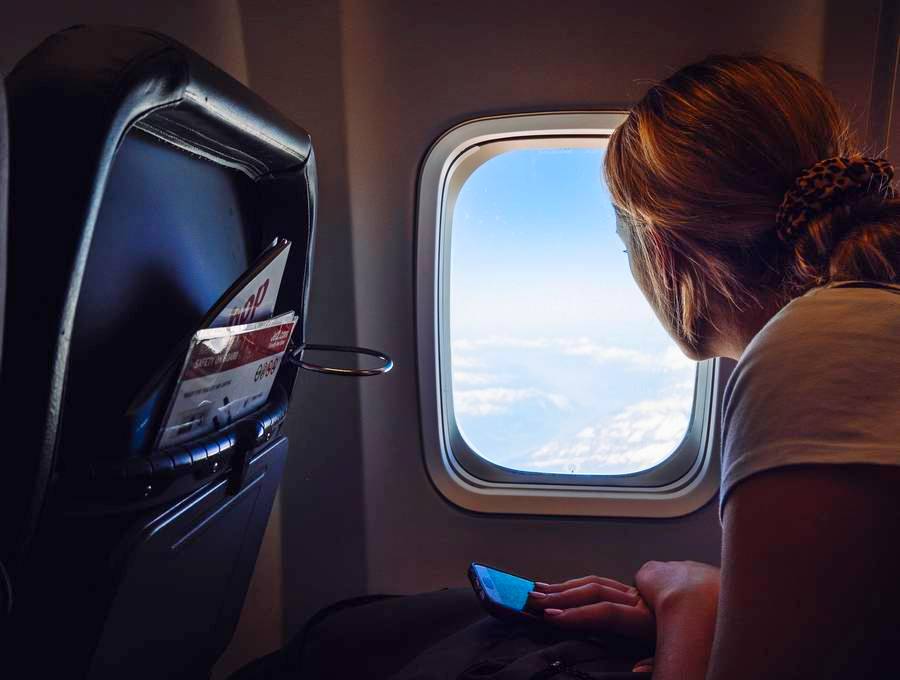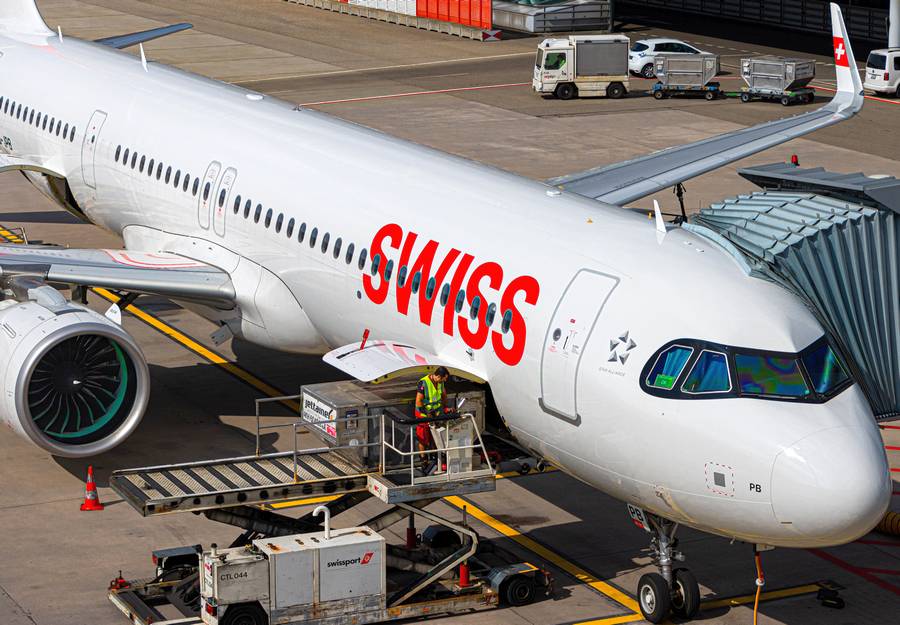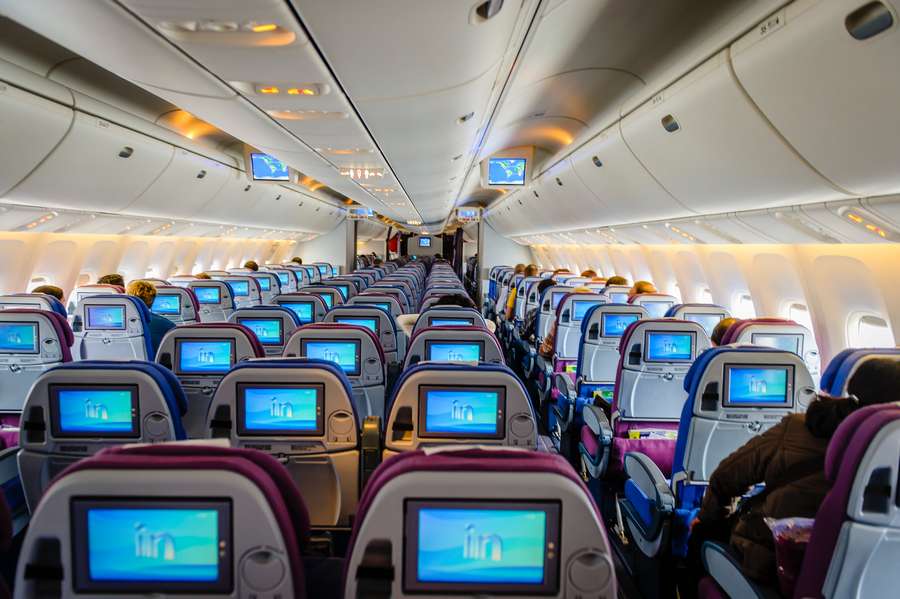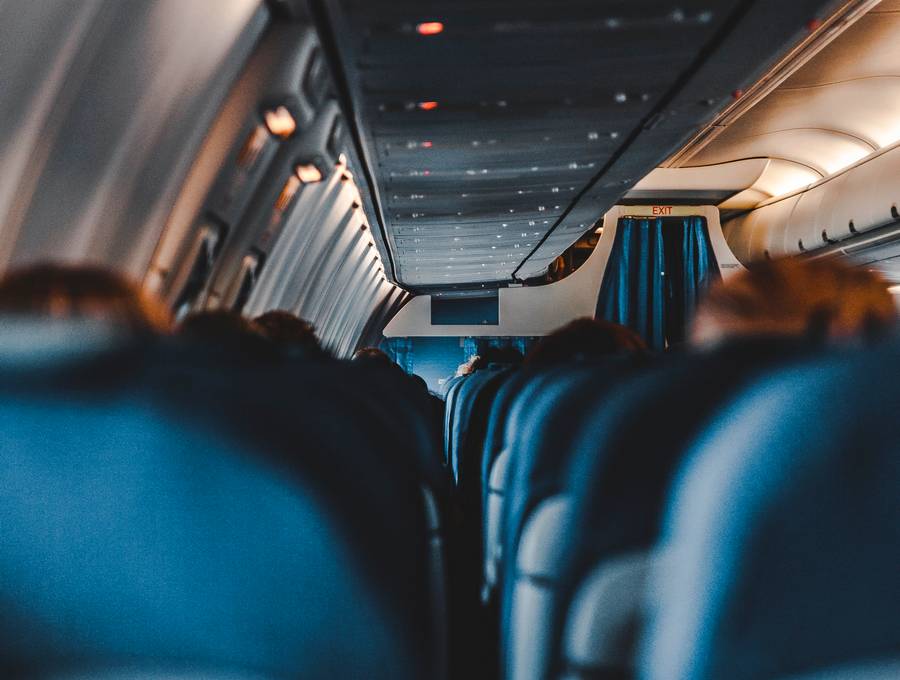In this article, we look at the role of hypervigilance, particularly sensory hypervigilance, in the fear of flying conversation.
About the Author
Suzanne Duke is a doctoral-level developmental psychologist who began her career working with young children and then with university students, particularly helping first-year students adjust to college life and living away from home. She is also a social worker and particularly enjoys treating anxiety disorders, such as fear of flying!

If you are a nervous flyer, have you ever wondered why it seems like all your senses are permanently stuck on overdrive every time you board a plane? Smells seem stronger, noises and changes in noises are more pronounced, and lights seem brighter? And the even stranger and more disturbing part of these changes in sensory experiences is that NO ONE except you seems to notice them or be bothered by them?
You are not alone. In fact, this experience of feeling like you are overwhelmed by your senses is one of the key features of aviophobia, and it even has its own name: hypervigilance. This week and next, in a two-part series, we are going to delve into how hypervigilance occurs, why it is such a crucial part of maintaining aviophobia, and most importantly, some techniques you can employ to start to develop control over your own hypervigilance. Below, we will begin by exploring the causes and purpose of hypervigilance and how it becomes distorted in the context of aviophobia. Next week, we will address the critical question of how nervous flyers can become aware of and manage their hypervigilance in the larger context of addressing their fear of flying.

What causes hypervigilance and what is its purpose?
In short, hypervigilance occurs as a result of autonomic nervous system activation. Perhaps you might recall from your secondary school biology course that the autonomic nervous system is responsible for “turning on” the part of the body central to the “flight or fight” response, such as determining your heart rate and blood pressure as well as other physiologic responses outside of your conscious control. Importantly, other such responses include sensory responses, such as how sensitive your sight, smell, and hearing are. (Theoretically, all five senses can be noticeably activated during the fight-or-flight response, but such total activation does not necessarily occur in all people every time the fight-or-flight response occurs.)
So if the fight-or-flight response is a normal biological function, what is its purpose? Evolutionarily, it has endured because, in a truly dangerous situation, it is extremely important. At its most basic level, it alerts us to potentially problematic situations, such as when we are walking alone on a poorly lit street and suddenly hear an unusual sound behind us. Such a sound is likely to be as benign as a neighborhood dog rustling around in the trees, but there is always the chance that the sound is something more alarming. Thus, the fight-or-flight response, particularly when it comes to sensation, has evolved to keep us safe as we live our everyday lives.

Hypervigilance and its relationship to fear of flying
So, if hypervigilance is fundamentally helpful insofar as it helps keep us alert and responsive to unanticipated danger, how does it go so badly awry in the context of fear of flying?
The simple answer to this question is when certain conditions are met, the fight-or-flight response can work against us. We can become unhelpfully hypervigilant if a stimulus that is not dangerous – in this case an airplane trip – is perceived by the autonomic nervous system as dangerous. When this happens, there can be a cascade of fears that result from the perception of normal sensory experiences. It becomes very common for nervous flyers to misinterpret normal airplane noises and sounds, interpreting them as harbingers of disasters. For example, many fearful flyers report a spike in heart rate (a physiologic indicator of fear) as well as a cognitive experience of fear when they start to smell the jet fuel while the plane’s engines are being started on the tarmac.
In this situation, fearful flyers often report believing there is a smoldering fire under the plane that is going to result in a conflagration at any moment when in reality, the pilots are simply giving the engines the fuel needed to start. Another common example of sensory hypervigilance gone awry occurs when the plane’s air conditioning system produces harmless condensation that is then perceived by a nervous flyer as smoke coming from the air conditioning vents. This condensation is completely benign and has no smell, but fearful flyers sometimes report acrid-smelling smoke coming from the ceiling to flight attendants. Hopefully, these flight attendants will kindly explain that there is actually no smell of smoke and that whatever the fearful flyers believe they are seeing is just the plane behaving normally. It should also be noted that very few passengers even notice this condensation, but very nervous flyers, because their level of vigilance is so high, are usually the passengers who report it.
One point I want to stress is that there is a considerable cognitive component in understanding how sensory hypervigilance impacts a nervous flyer. For hypervigilance to even become an issue, a pre-existing cognitive fear needs to be present. In the case of nervous flyers, they are hypervigilant because they are already afraid of flying. Their hypervigilance can, in fact, be thought of as a kind of confirmation bias. That is, they have a pre-existing fear of flying, so their body distorts normal situational conditions (e.g., the plane’s engines making the cabin smell a bit like jet fuel) to meet their expectations (e.g., the smell is clear of evidence of FIRE FIRE FIRE!!!!). Acknowledging the role of cognition in maintaining hypervigilance is crucial to understanding the complexity of hypervigilance as well as strategies to deal with it, which we will discuss next week. (Hint hint: controlling how you think about a fearful stimulus can help control your physiological response…).

That said, I hope this was a useful start to the conversation about how you can learn to manage your hypervigilance, which is an enormous feature of aviophobia. As usual, leave a comment below if you want to share a thought about this subject with other readers. And, of course, I am always available at [email protected] if you would prefer to communicate that way. Good luck, and keep the faith!
Previous articles in this series:
- 5 Strategies To Decrease Your Flight Anxiety
- What Exactly IS Aviophobia?
- How and Why Do People Develop a Fear of Flying?
- The Best Ways To Treat Your Fear of Flying?
- Use Medications, Alcohol to Control Flight Anxiety?
- What If My Child is Afraid of Flying?




